
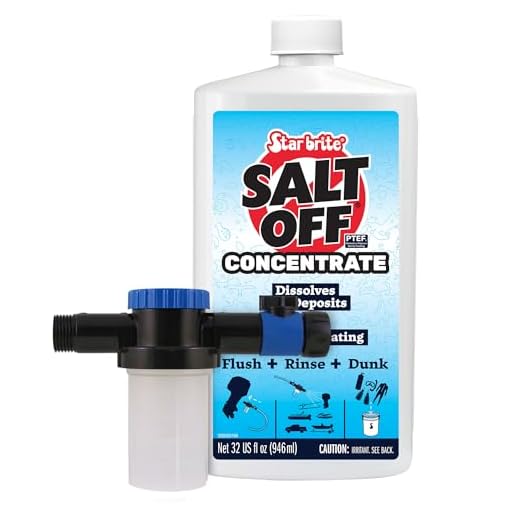
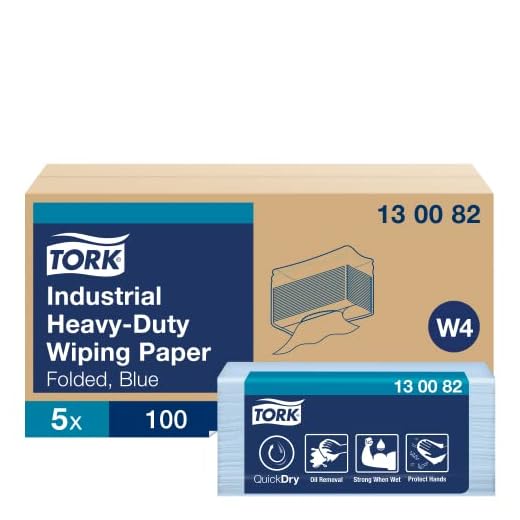
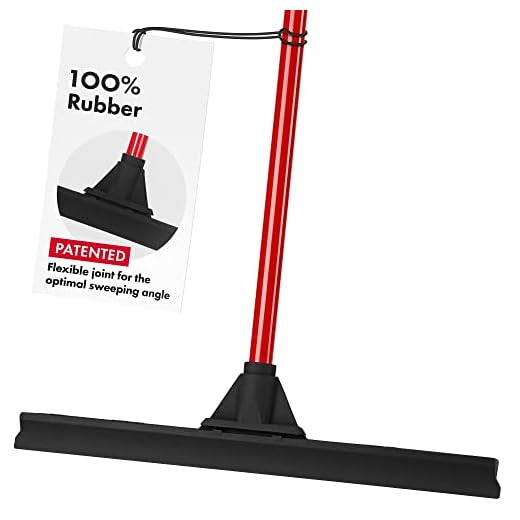
Begin with a mixture of warm water and a suitable detergent in a bucket. Use a scrub brush with stiff bristles for added scrubbing power. This approach works wonders for removing dirt and stains that have settled into the surface. Dip the brush into the soapy mixture and start scrubbing small sections, applying firm pressure to loosen any stubborn grime.
For organic growth, like mould or mildew, combine water with white vinegar or baking soda. Apply this solution directly onto the affected areas and let it sit for approximately 15 minutes before scrubbing. This method not only cleans but also acts as a natural disinfectant, ensuring a safer outdoor space.
Rinse the area thoroughly using a regular garden hose, making sure to wash away all soap residue and loosened debris. For an extra touch, consider using a soft bristle broom to flush out corners and edges where dirt tends to collect. This manual method, while more labour-intensive than using a mechanical device, can yield remarkable results when done consistently.
Alternative Techniques for Cleaning Your Outdoor Space
Utilise a mixture of warm water and dishwashing soap. Combine about a quarter cup of detergent with a gallon of water in a bucket. Use a stiff-bristled broom to scrub the surface, targeting dirt and stains effectively. Rinse thoroughly with a hose to ensure no soap residue remains.
Natural Solutions for Stubborn Stains
For tougher grime, create a paste using baking soda and vinegar. Apply this paste directly to stained areas and let it sit for about 10–15 minutes. Scrub gently with a brush and rinse well. This combination lifts dirt and discolouration effortlessly.
Caring for the Wood
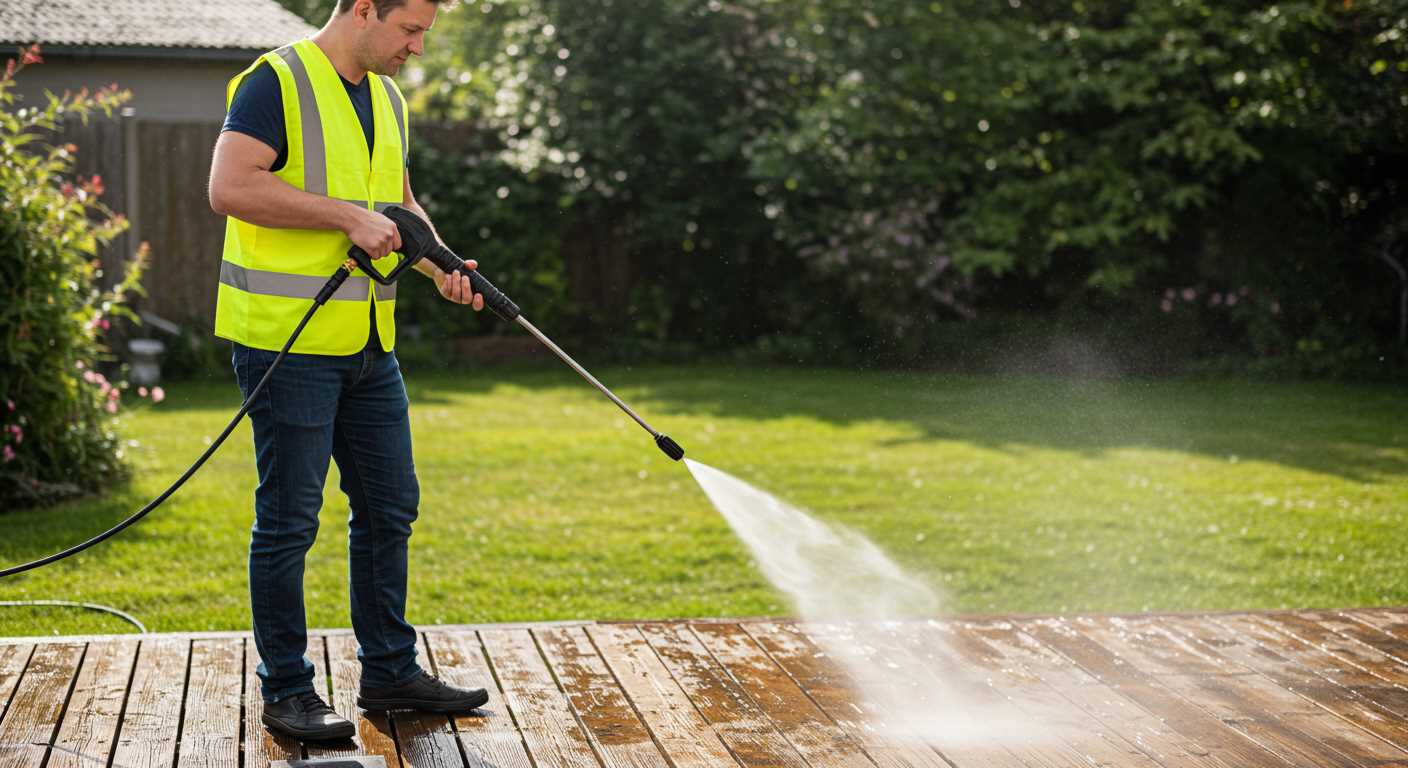
After removing debris and stains, consider applying a wood conditioner or sealer. This will protect your surface from moisture and UV damage. The right products will extend the lifespan of the material and enhance its appearance.
Gathering the Right Cleaning Supplies
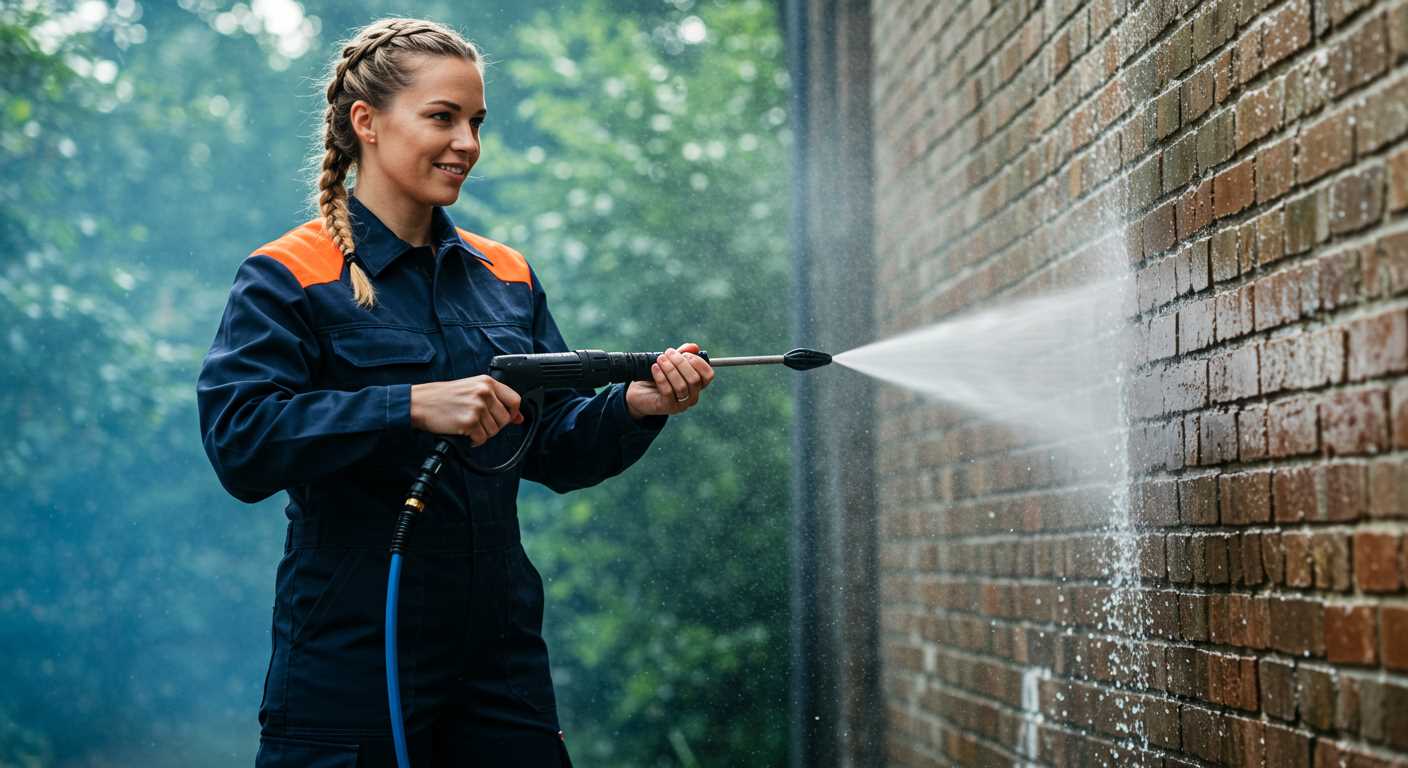
Start collecting your cleaning materials to effectively refresh your outdoor space. Here’s a concise list of what you’ll need:
Basic Cleaning Tools
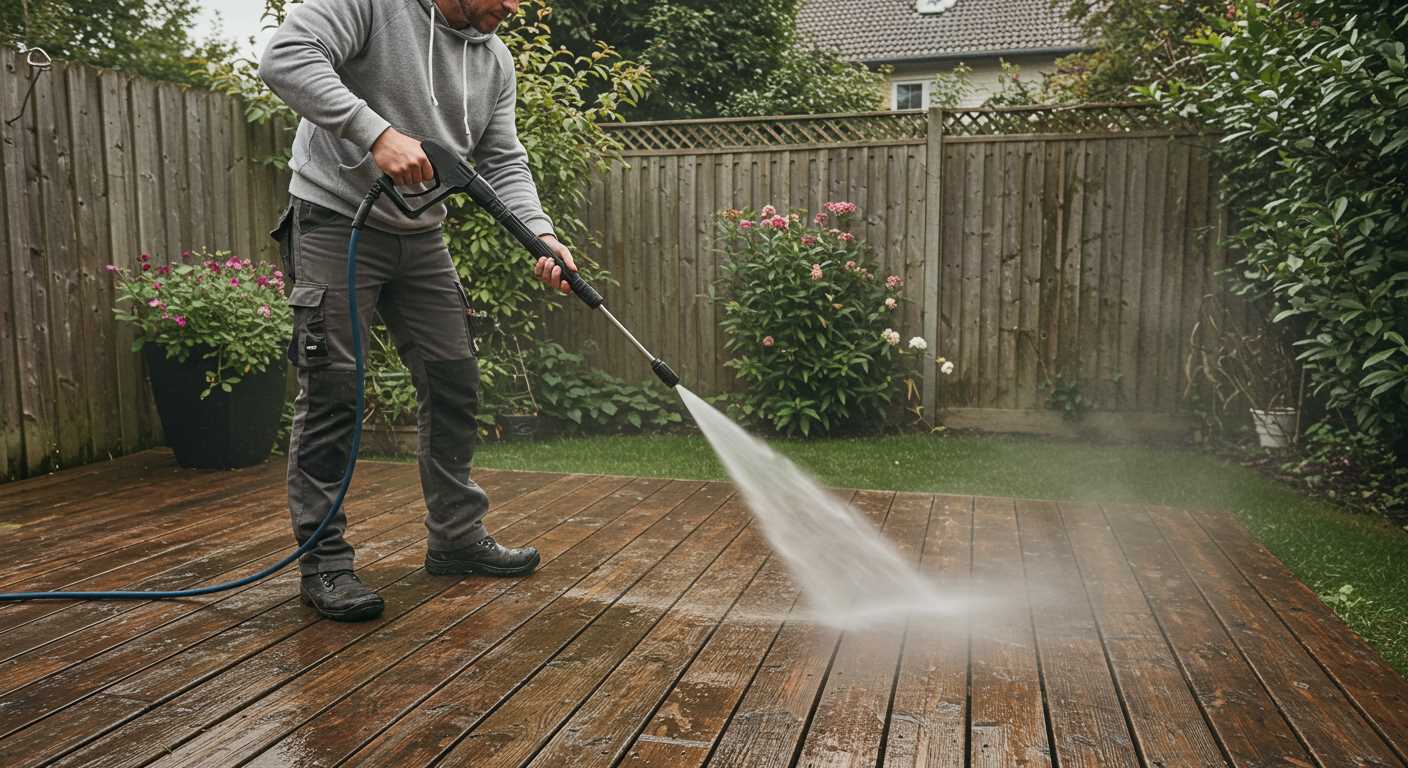
- Soft-bristle broom or deck brush
- Bucket for solution mixing
- Garden hose with a spray nozzle
Cleaning Solutions
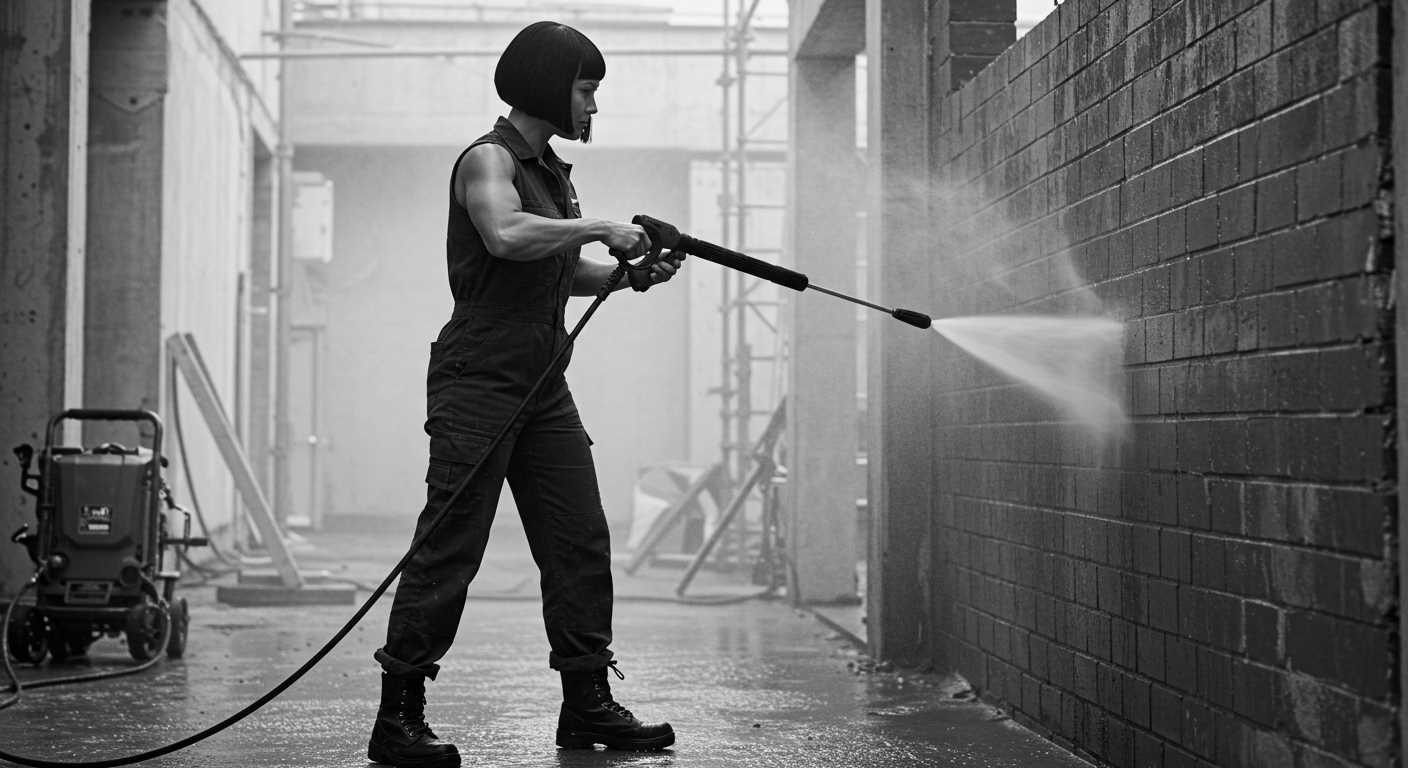
Opt for gentle and eco-friendly alternatives. Common ingredients include:
| Ingredient | Purpose |
|---|---|
| Baking Soda | Removes stains and odours |
| White Vinegar | Acts as a natural disinfectant |
| Dish Soap | Breaks down grease and grime |
Blend these ingredients with water for a safe and effective cleaning solution. Use the garden hose to rinse thoroughly, ensuring no residue remains. Keep your workspace organised to streamline your effort, laying out everything within arm’s reach for efficiency.
Preparing the Surface for Cleaning
Begin with a thorough inspection of the area. Look for loose boards, protruding nails, or any signs of damage that require attention before proceeding.
Clear the space of furniture, pots, and decorative elements. Store items in a dry place to prevent them from getting wet or damaged during the cleaning process.
Remove loose debris such as leaves, dirt, or sand using a broom or a leaf blower. This step is crucial to avoid scratches during the scrubbing phase.
Next, handle any mold or mildew present. A mixture of vinegar and water can be effective for this purpose. Spray the affected areas and let it sit for a while before brushing off the growth.
Inspect for any grease stains, particularly near cooking areas. Consider using a degreaser or a mix of baking soda and water for those stubborn spots. Apply the solution directly to the stain, allowing it to soak in.
Test a small, inconspicuous area with your cleaning solution to ensure it does not harm the material. Once cleared, proceed to mark off the boundaries of the area you intend to clean. This helps in maintaining focus and achieving a more thorough clean.
Finally, ensure the surroundings are prepared. Cover any plants or adjacent surfaces that might be affected by cleaning products. Protect exposed electrical outlets or features nearby.
Choosing the Appropriate Cleaning Solution
For maintaining outdoor surfaces, selecting the right cleaning solution is crucial. Start with a mild detergent that’s specifically formulated for outdoor use. Look for biodegradable options that are safe for plants and pets. A common choice is a mixture of warm water with dish soap, which effectively lifts dirt and grime without damaging the surface.
Alternative Natural Remedies
Baking soda and vinegar are excellent alternatives for those seeking natural solutions. Combine one cup of baking soda with a half cup of white vinegar, and mix with a gallon of water. This concoction not only cleans but also neutralises odours and is safe for a variety of materials.
Commercial Cleaners Considerations
If opting for commercial products, ensure they’re compatible with the specific material type you are cleaning. Many brands offer specialised cleaners for wood, composite, and synthetic surfaces. Always read the label for instructions on dilution ratios and application methods to secure the best results.
Scrubbing Techniques for Different Deck Materials
For wooden surfaces, use a stiff-bristled brush paired with a cleaning solution specifically designed for wood. Apply firm, even pressure while scrubbing along the grain to lift dirt and mildew effectively. Rinse the area thoroughly after treatment to prevent residue buildup.
If your surface consists of composite materials, a softer brush is recommended. Focus on circular motions, ensuring to reach the grooves where dirt often accumulates. Avoid harsh chemicals; a mixture of mild soap and water suffices.
For vinyl or PVC, utilize a non-abrasive scrub brush. This type of material can handle more vigorous cleaning, so feel free to apply a bit more pressure, but always test a small area first. Regularly rinse off debris to maintain its appearance.
Concrete surfaces require a more robust approach. An industrial-grade brush with tough bristles can tackle stains and ground-in dirt effectively. Use a suitable cleaner designed for concrete, allowing it to sit for a few minutes before scrubbing.
In all cases, rinsing is crucial for preventing any cleaning solution from leaving marks or residues. Adjust your technique based on the specific material to maintain its integrity while achieving a clean finish.
Rinsing and Drying the Deck Properly
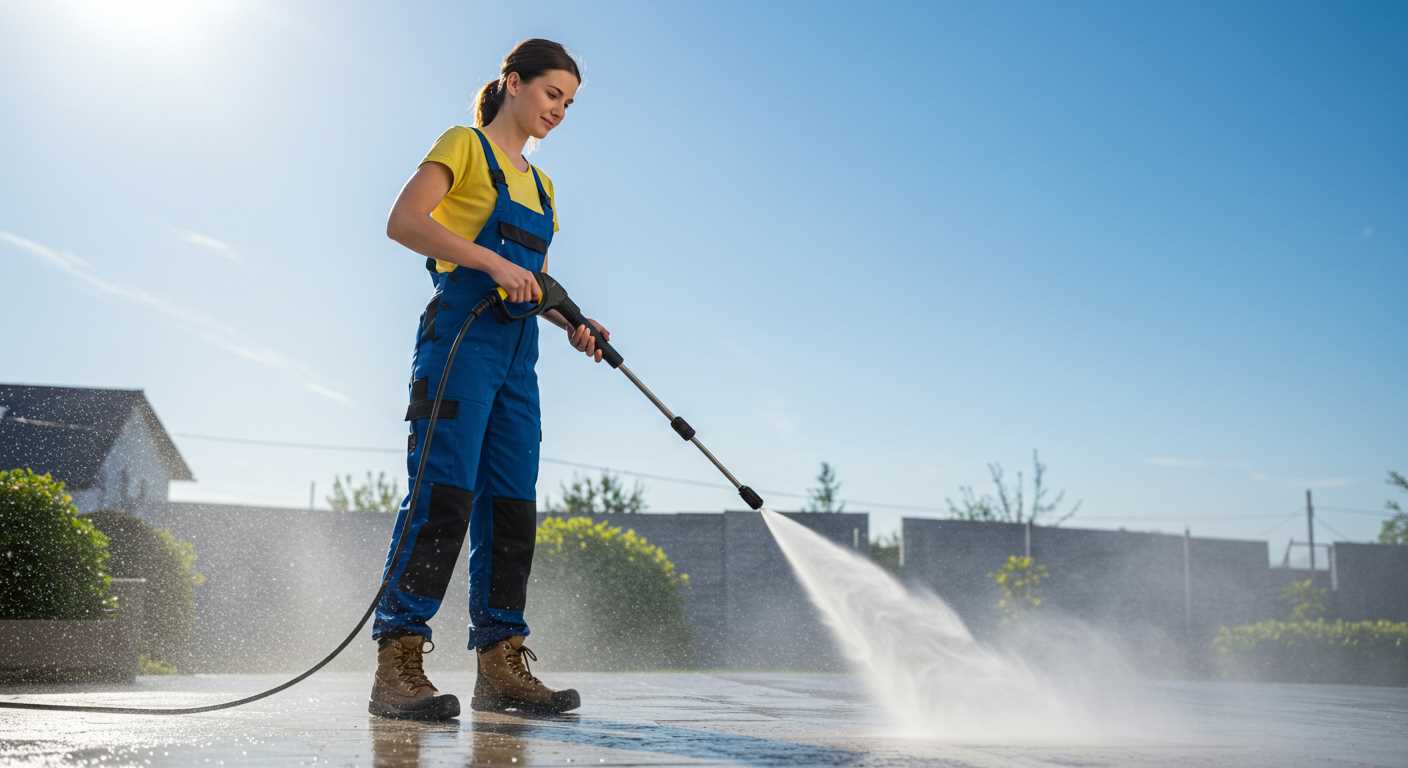
Utilise a hose with a spray nozzle to rinse thoroughly, focusing on corners and crevices where dirt and debris often collect. Begin at one end and move systematically to ensure all areas receive adequate water flow. Adjust the nozzle to achieve a gentle spray, which helps prevent damage while thoroughly removing soap and residues.
Monitor the surface during rinsing for any lingering soap suds, which can attract dirt if not completely washed away. After rinsing, allow the moisture to drain for a few minutes before applying any drying techniques.
For effective drying, employ a clean push broom or squeegee. Sweep or push excess water toward the edges. If it’s sunny, the heat will naturally expedite the drying process, but if it’s cloudy or humid, consider using fans or towels to absorb remaining moisture swiftly.
Conduct a final inspection to confirm there are no puddles left behind, as residual moisture can lead to mould or mildew growth. Proper drying is crucial for maintaining the integrity and appearance of the surface long-term.
Maintaining Your Deck After Cleaning
To maximise the longevity and appearance, regular upkeep is essential following a thorough cleansing session. Here are key actions to take:
Regular Inspections
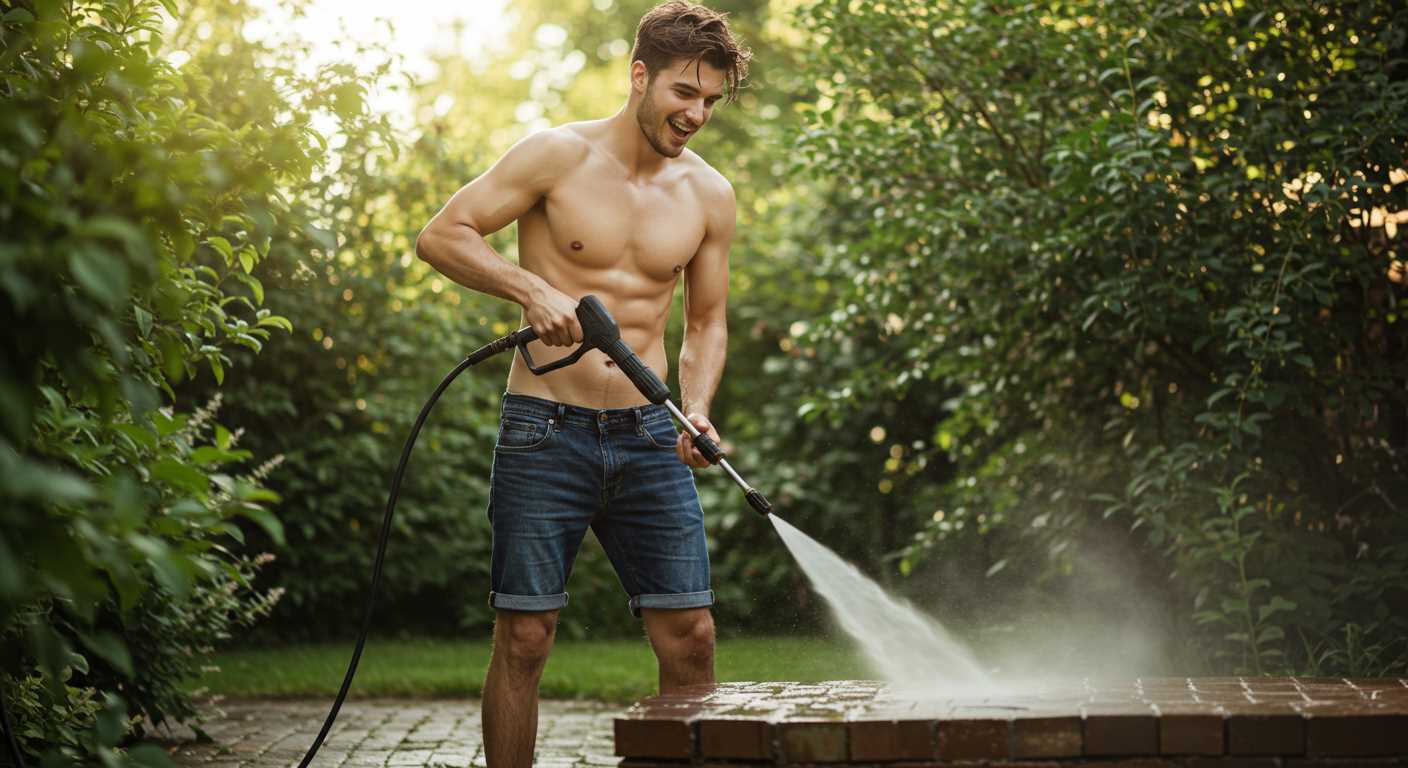
- Check for signs of wear or damage, such as loose boards or cracks. Addressing these issues promptly prevents further deterioration.
- Look for mould or mildew; if noticed, treat immediately with appropriate solutions to restore the surface.
Protective Treatments
- Apply a sealant or stain suitable for the material. This enhances resistance against moisture and UV rays.
- Re-evaluate the need for reapplication of treatments annually or biannually, especially after heavy rain or sun exposure.
Maintaining cleanliness is crucial. Sweep often to remove debris and dirt, which can accumulate and lead to discolouration. Keep foliage trimmed back to prevent organic material from resting on the surface.
Using mats or rugs in high-traffic areas helps reduce wear and tear, maintaining the aesthetic appeal while providing added comfort. Regular maintenance ensures your outdoor space remains inviting and functional.







